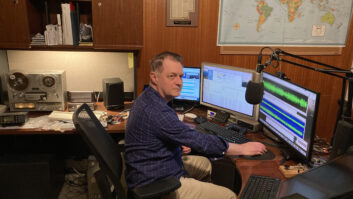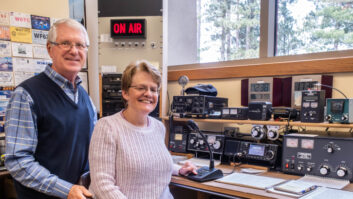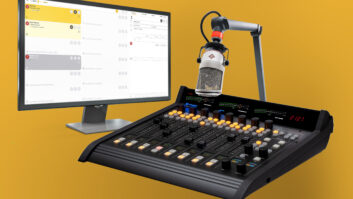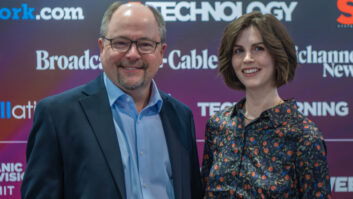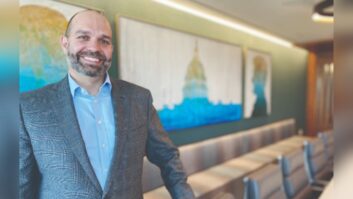Getting into the testimony at the FCC hearing, NAB EVP for Television Marcellus Alexander, said “We have the most vibrant broadcasting system in the world,” and pumped his fist for emphasis. He discussed how radio and TV stations in San Diego and Los Angeles served their communities during the California wildfires and played a tape from KABC(TV), Los Angeles.
XM host and former “Morning Edition” talent Bob Edwards testified for AFTRA, which he said represents more broadcasters than any other union.
“The major radio conglomerates argue that ownership caps should be lifted” to ease the threat from satellite radio. “This ignores the strength of radio is that it’s local.”
Capital Broadcasting President/CEO Jim Goodman said the FCC should wait until the digital transition is over before starting to change ownership rules; and when it does focus on the rules, to look at them as a whole, rather than piecemeal, reminding commissioners that many owners have both radio and TV in their portfolio.
Leadership Conference on Civil Rights President/CEO Wade Henderson said ownership gets to the heart of how media covers issues and what topics are chosen.
“The battle over who controls media is a battle civil rights media has fought for decades,” he said. If the images of dogs and water hoses leashed on protestors hadn’t been aired in TV years ago, civil rights gains would not have occurred, he said.
Rainbow PUSH Coalition President/Founder Rev. Jesse Jackson said, “For too long, media policies have been made behind closed doors. It’s time to democratize the way the FCC operates.”
In the city of Washington, people of color make up more than 70 percent of the population, yet only one TV station is minority owned, Jackson said. At this point the protestors cried, “Shameful!” [According to the Census Bureau, as of the 2005 census update, 62.69% of the population of the District of Columbia does not identify as white; however, Jackson’s point remains. Eleven full-power TV stations operate in the D.C. market.]
He then turned his comments to the potential satellite radio merger and said the deal is not in the public interest. A protestor behind him held up a sign that read: “Where are the women on this panel?”
George Washington University Professor Christopher Sterling said there’s plenty of local outlets, but too few voices and the plethora of opinions out there today provides little real diversity of programming. “Too often, new entrants are cut off at the knees by existing broadcasters, including public radio, complaining about interference.” I took that as a reference to NPR and NAB on the question of whether it’s wise to drop third-adjacent channel protection in a heavily populated market to allow new LPFMs on the air.






